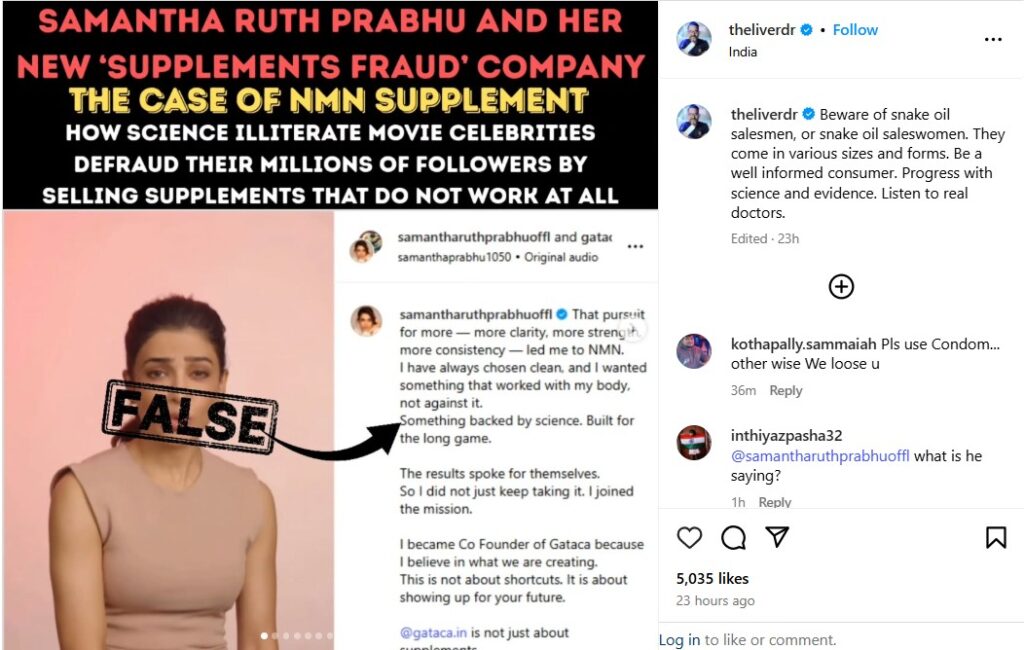June 4, 2025: Samantha Ruth Prabhu’s latest endorsement has triggered sharp criticism from the medical community. The actor, who recently announced her association as co-founder of a supplement brand claiming to support energy and focus through NMN (Nicotinamide Mononucleotide), is under fire from Dr Cyriac Abby Philips, a liver specialist known for his focus on evidence-based medicine.
The supplement in question is promoted as a product aimed at improving cellular energy and addressing age-related decline, a narrative that has grown common in wellness marketing. Samantha’s public support for the product included claims about its ability to help restore vitality, along with assurances about quality testing.
Dr Cyriac Urges Public to Question Samantha’s Health Claims

Dr Cyriac, however, publicly opposed the scientific basis of such claims. He raised concerns about celebrities endorsing health supplements without clear clinical evidence, particularly when those supplements are positioned as solutions for age-related concerns. His criticism focused not on Samantha personally, but on what he sees as a broader pattern of influencers promoting unverified health products.
Samantha, who shared that she has personally benefited from the supplement and now plays a leadership role in the brand’s development, has not responded to the recent backlash. Her public messaging framed the brand as forward-thinking, science-based, and committed to clean manufacturing practices.
This is not the first time Samantha’s health-related recommendations have been challenged by medical professionals. In the past, she has faced scrutiny for promoting treatments that lack strong clinical support. The concern expressed by critics centers on the impact such endorsements can have, given the wide reach of celebrity platforms.
Medical professionals caution that while supplements may seem appealing, their effectiveness should be supported by rigorous studies before being promoted to the public. The gap between commercial claims and scientific validation remains a significant issue in the growing wellness industry.
As this debate unfolds, it draws attention to the responsibilities public figures carry when endorsing products related to health. Consumers are being urged to seek advice from qualified healthcare providers and to remain cautious of marketing messages that may oversimplify complex medical topics.

